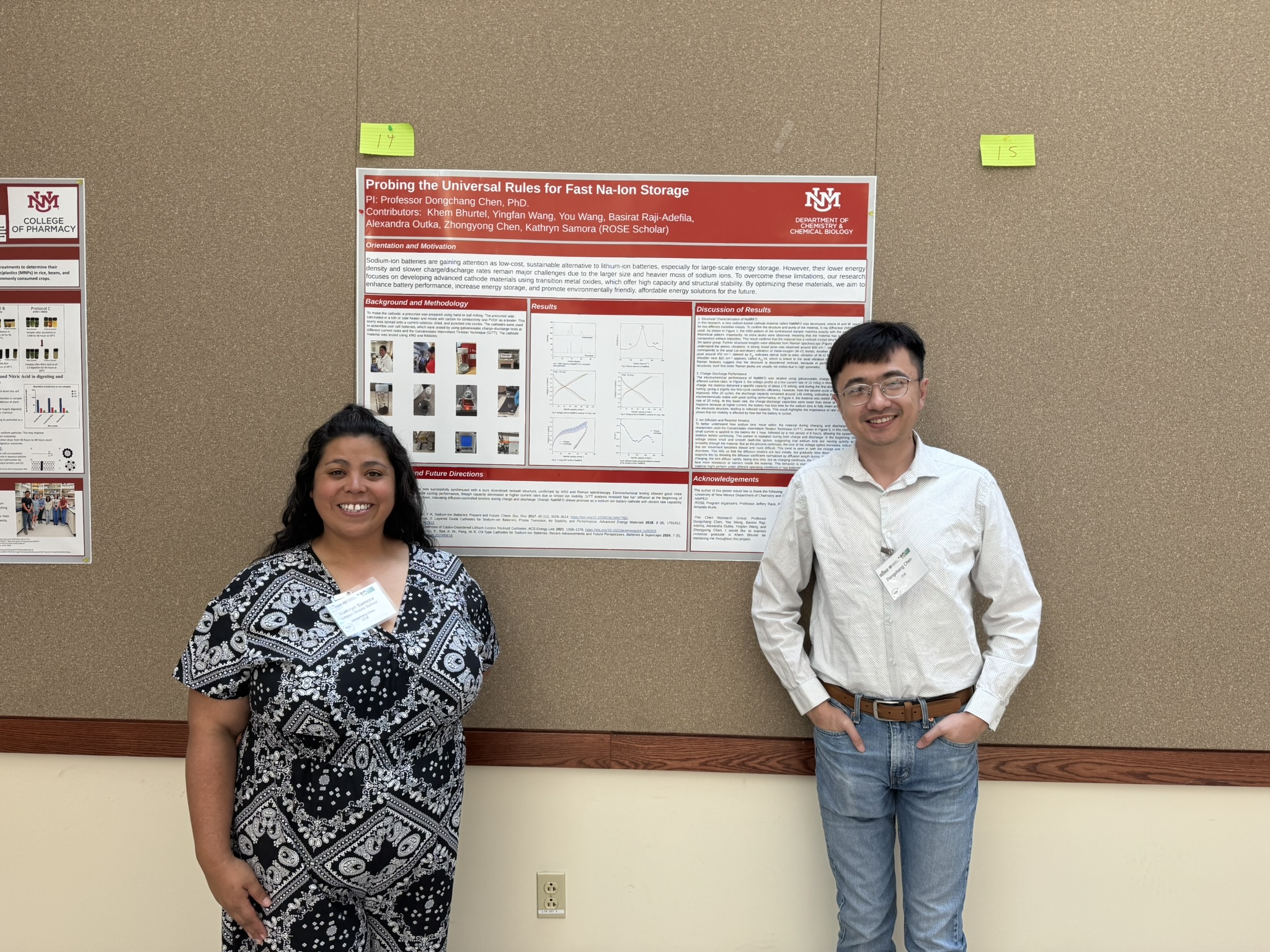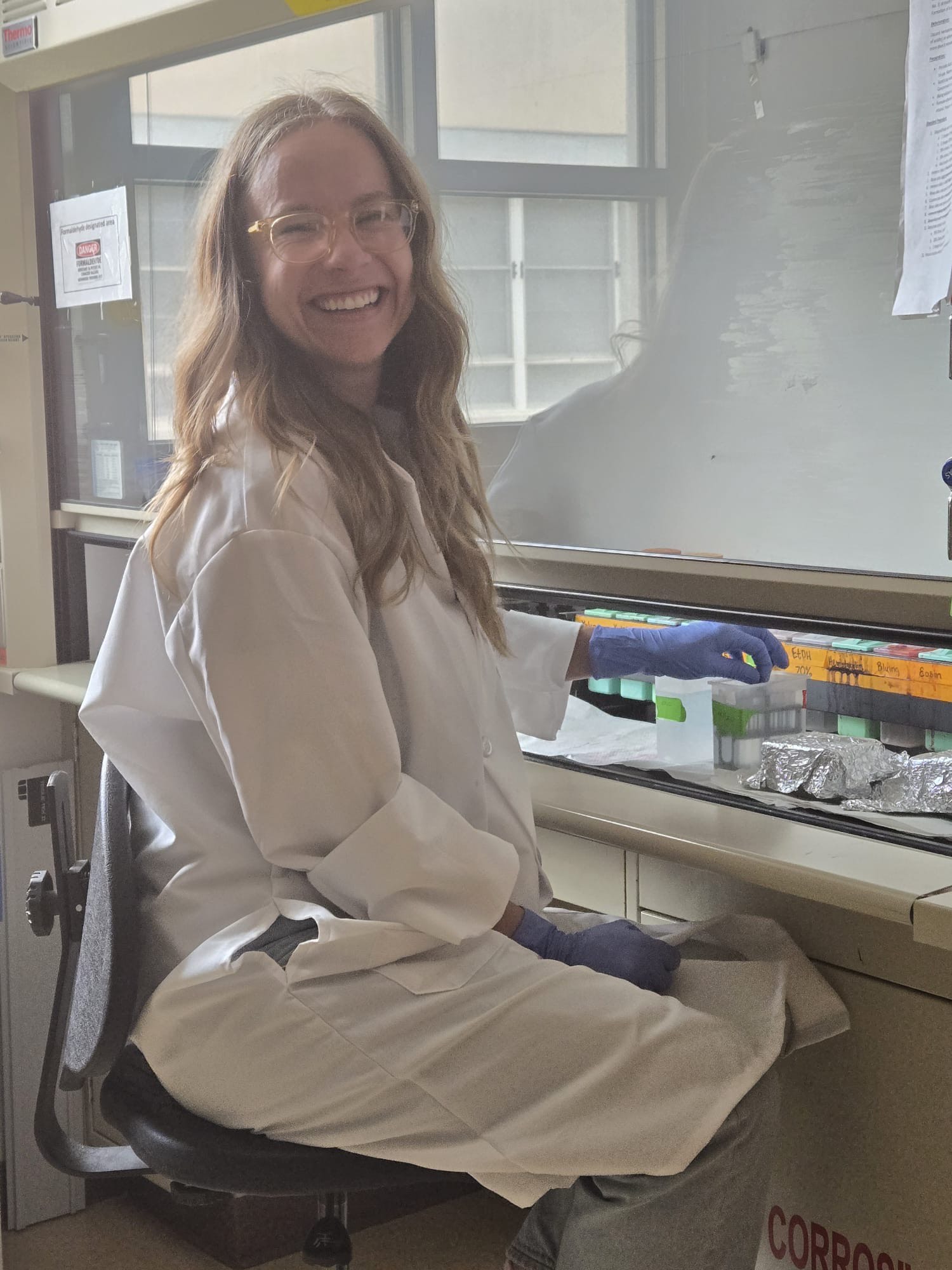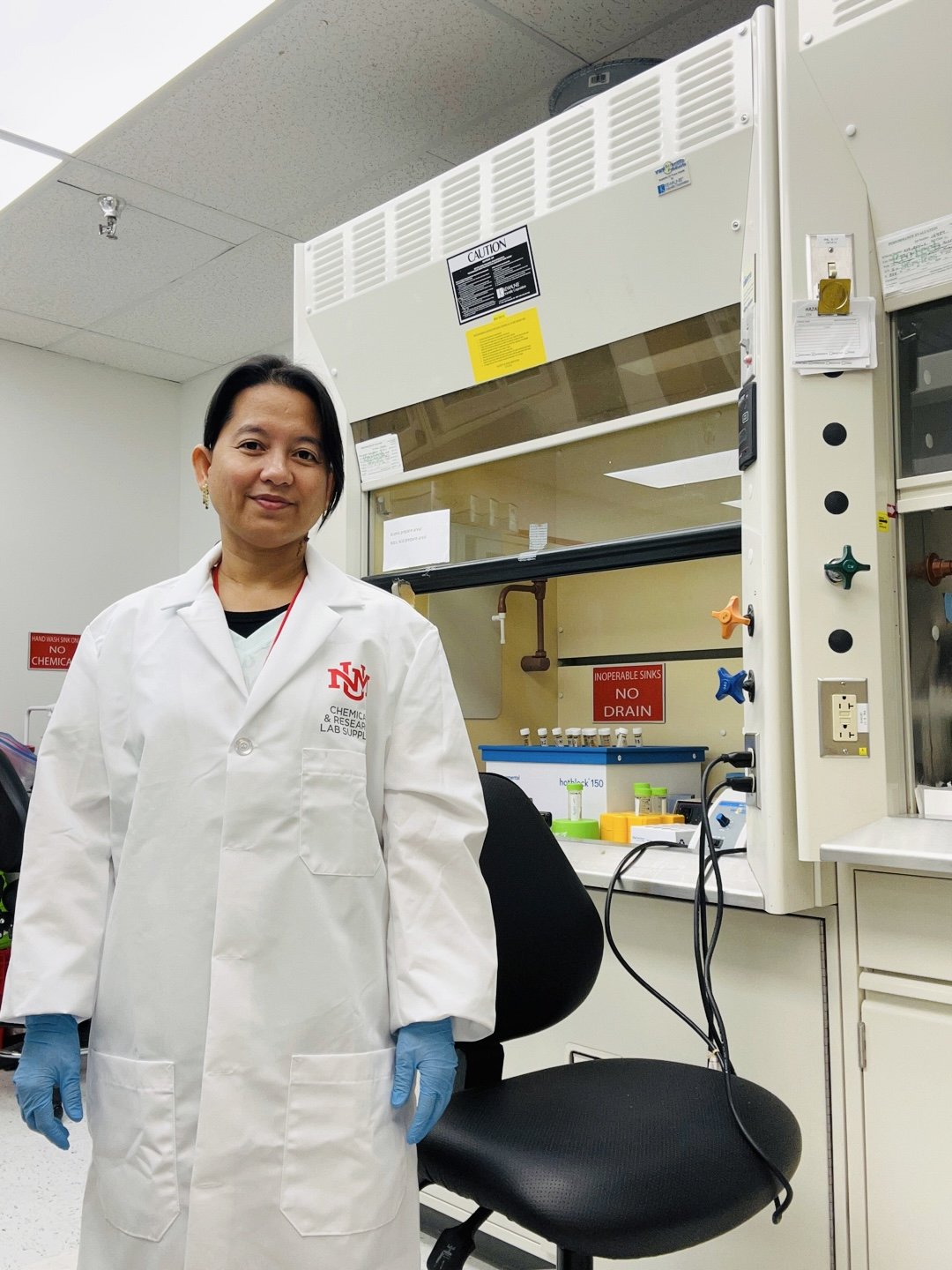Juliet Tandoy is a sixth-grade science teacher at Zuni Middle School, an educator for 22 years, and always looking for ways to better connect science to the real world for her students. Then, two years ago she applied for The University of New Mexico's Research Opportunities for Science Educators (ROSE) Program, and not only did she find ways to keep her students engaged and interested in her lesson plans, Tandoy and her colleagues found a way to revive the middle school's long-dormant science fair.
"Through our participation in real, hands-on research and collaboration with scientists, we were reminded of the excitement and value of scientific inquiry, not just for ourselves, but for our middle school students as well," Tandoy said. "The ROSE Program reignited a shared passion within our science department to create opportunities where students could experience the thrill of discovery and the satisfaction of presenting their own ideas."
In partnership with the State of New Mexico Public Education Department, UNM professors Jeff Rack and Steve Cabaniss founded the program in 2021 that places New Mexico science teachers in existing summer UNM research groups for hands-on experience in discovery-based research opportunities.
"The UNM ROSE program is a groundbreaking initiative that bridges the gap between cutting-edge university laboratories and the vibrant learning environments of middle and high school classrooms," Cabaniss said. "The activity is an authentic research experience in which ROSE Scholars see "how science is done" within various disciplines and subfields while working with faculty and student researchers."
"The ROSE Program is a prime example of higher education and K-12 education working hand-in hand to provide the best professional development opportunities for teachers. Research opportunities from universities like The University of New Mexico inspire science teachers, fueling their passion for learning and teaching. By bridging academia with K-12 education, these experiences enrich STEM education and cultivate a love for discovery in classrooms, shaping a brighter future," said Higher Education Secretary Stephanie Rodriguez.
Over the past five years, the program has successfully welcomed more than 65 educators from various regions across the state, with a significant representation from rural areas of New Mexico. This year, the initiative proudly supported 20 scholars from across the State; however, it marked a pivotal moment as the ROSE Program coordinators faced the difficult decision to restrict the number of accepted scholars in response to limitations on the availability of state funding. The reality of scarce resources creates ongoing financial challenges that integrated educational activities, like the ROSE Program, must face while also highlighting the program's commitment to providing quality, hands-on professional development opportunities for K-12 teachers, particularly those from marginalized communities.
"The impact of research experiences on K-12 educators has been highlighted in numerous studies, showcasing their ability to cultivate a richer understanding of student needs, refine classroom practices, and bolster STEM competencies and confidence among both students and teachers alike," UNM Vice President for Research Ellen Fisher said. "The ROSE program stands as a shining example of these beneficial results, illustrating the transformative power it holds for all involved— from the dedicated researchers at UNM to the passionate teachers and their eager students."
The ROSE summer session typically begins in June and runs through mid-July. Scholars receive a $1,200/week stipend as they work alongside a UNM research group. At the end of the program, scholars participate in a poster session wherein they present their research in front of their colleagues, faculty mentors, state legislators, and UNM leadership. The program has been so successful some of its participants are returning for their second or third summer.
"Scholars tell us it has changed their classroom teaching as well as how they view the field of science. They return to their classrooms bringing new ideas, tools and enthusiasm to share with students." Cabaniss said.

ROSE Highlights:
Kathryn Samora | Lincoln Middle School
I taught life science for five years at Lincon Middle School but I've been an educator for 15 years.

Today's Challenges
One of the biggest challenges I face as a middle school science teacher is helping students believe that science is for them. Many of my students come into the classroom already doubting their place in the scientific or academic world. They may not see themselves represented in science, or they may think they have to look or act a certain way to be taken seriously. Getting them to see the value in developing skills like critical thinking, problem solving, and curiosity, especially at this age, can be difficult.
The ROSE Program
The ROSE Program gave me concrete ways to show students how the skills we practice in class are not just academic exercises, but essential tools used by real scientists. Working alongside graduate students reminded me of former students I have taught, students with curiosity, drive, and unique perspectives who often do not see themselves reflected in traditional spaces. Building relationships with those graduate students and bringing their voices into my classroom will help my current students feel more seen, more represented, and more connected to the world of science.
The program also helped me connect classroom learning to real research, where communication, collaboration, and diverse perspectives matter deeply. More than anything, it gave me new ways to help my students see themselves as part of that world, not someday, but now.
Research Experience
I was fortunate to collaborate with the Chen Research Group in the Department of Chemistry and Chemical Biology, where cutting-edge research is underway to develop new materials aimed at improving battery performance.
One aspect of the program that resonated deeply with me was observing how the Chen Research Group functioned as both autonomous individuals contributing their unique expertise and as a cohesive community united by collaboration and mutual support. This balance between individual initiative and collective effort is something I am eager to bring into my classroom.
Amanda Simmons | East Mountain High School
I have always wanted to be an educator and that journey started here at UNM. After I received my degree in elementary education I began my career in a middle school STEM classroom. A curiosity blossomed within me when I moved to teaching high school, how do we use science to navigate the world? Even after completing my fifth year at East Mountain High School that curiosity has yet to dampen.

Today's Challenges
I have a number of students who are quickly making their way towards a STEM related field and without any direct research experience, I lacked a grounded sense of what skills are needed for my students to find the success they're looking for in higher education and beyond. My time in the ROSE Program has inspired me; previously timid in a lab setting, I have a much better understanding of how to motivate students. I also feel better equipped challenging students into deepening their thinking and investigating practices.
The ROSE Program
I want my students to be successful and inspirational scientists, and I had no functional context of what a scientist truly does, outside of how we teach the process of scientific inquiry in our classrooms. The ROSE Program is an opportunity for me to explore my strengths and areas where I have the opportunity to grow.
Research Experience
I spent the summer with Professor Irene Salinas' lab, part of the Center for Evolutionary and Theoretical Immunology, working with trout, lungfish, and zebrafish exploring their immunological structures and responses.
Juliet Tandoy | Zuni Middle School
My name is Juliet Tandoy and I've been teaching science classes at various levels for 22 years, and I just completed my third year at Zuni Middle School. My school has a deep connection to the Zuni community and culture. Our district partners closely with families to inspire academic excellence while honoring its values and traditions.

Today's Challenges
One of the struggles I encounter as a middle school teacher is keeping students consistently engaged and interested in class and showing them how science connects to the real world. With students having diverse learning styles and constant distractions, keeping their attention focused throughout the lesson can be a real challenge.
The ROSE Program
I returned for a second year in the ROSE Program because it reignites my passion for teaching and reminds me why I fell in love with science in the first place. The ROSE Program helps address this challenge (above) by reigniting my own passion for science through hands-on research experiences. When I'm excited about what I'm learning that energy naturally carries over into my teaching, thus radiating this energy to my students.
Research Experience
During this program, I am learning from faculty in the College of Pharmacy. I'm involved in a research project that uses advanced tools to look closely at the chemical makeup of tissues, including creating a detailed map of where certain molecules or elements are found in the body.
It's exciting work because it shows how chemistry and technology can come together to answer big questions about health and biology.
2025 ROSE Scholars
- Maribel Bernal | Gadsden Middle School
- Ana Rosa Carmona | Zuni Middle School
- Cynthia Dumayas | Tse Bit Ai Middle School
- Florence Fiegalan | Kirtland Central High School
- Lamberto Jr Geolin | Chee Dodge Elementary
- Violet Hobbs | Lovington High School
- Kelly Holmes | Washington Middle School
- William Kennedy | Valencia Middle School
- Mirasol Laberinto | Grants High School
- Margaret Lewis | Robertson High
- Jahn Clarisse Madlangbayan | Capital High School
- Venetia Phillippe | Santo Domingo School
- Cris Anthony Rabino | Zuni High School
- Kathryn Samora | Lincoln Middle School
- Amanda Simmons | East Mountain High School
- Juliet Tandoy | Zuni Middle School
- Romalyn Ubaldo | Santa Rosa High School
- Adrienne Vigil | Santa Fe High School
- Naomi Vijeila | Solare Collegiate Charter School
- Paul Yackel | Albuquerque High School






